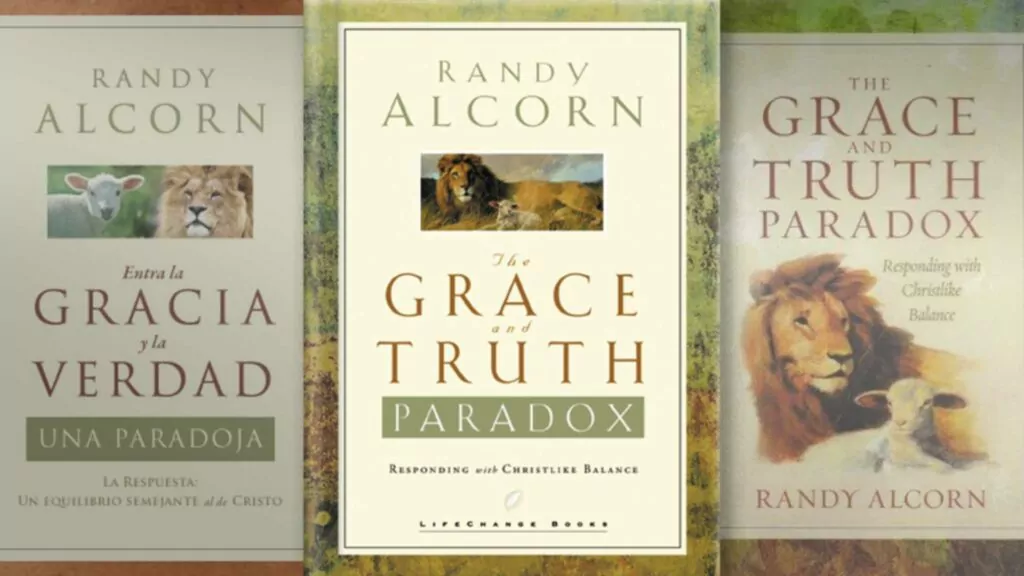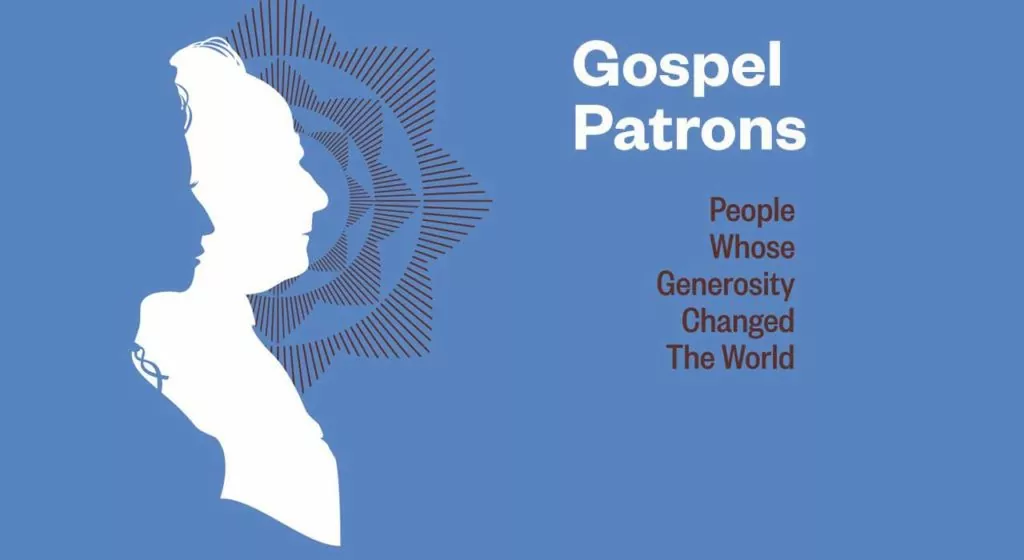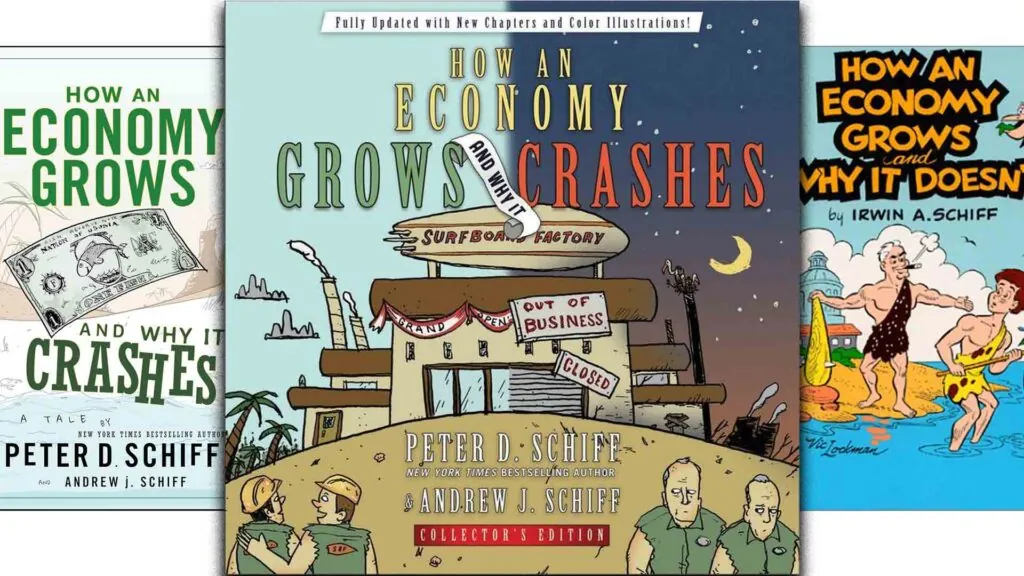In Matthew 13:44 we find a single verse that captures the heart and soul of following Christ: “The kingdom of heaven is like treasure hidden in a field. When a man found it, he hid it again, and then in his joy went and sold all he had and bought that field.”
Picture an average guy, leading a routine life. One day something happens that changes his life forever. While crossing a field, aimlessly thrusting his staff into the ground, he hears a thud. He gets down on his knees, digs with his hands, and finds treasure. He realizes this is very old – way too old to have been buried by the current landowner, who wouldn’t have any idea it’s even there. He has found unclaimed treasure, waiting for someone to unearth it.
The treasure captures his imagination. It becomes the reference point, the center of gravity of his life. He is single-mindedly bent on obtaining that treasure. He is willing to pay any price. This is a man who experiences the ultimate paradigm shift. He takes on a new perspective and sees life through different eyes.
Incomparable joy
Of course, Jesus is simply using the treasure in the field as an illustration of heavenly treasure. No matter how great an earthly treasure is, it’s still worthless in the eyes of eternity. In fact, it is exactly this kind of treasure that people waste their lives on. Jesus is appealing to what people do value – temporary earthly treasure – in order to make an analogy to what they should value: eternal heavenly treasure.
Today, Christians desperately need such a radical paradigm shift. God doesn’t just raise up donors; He raises up disciples whose lives are so filled with a vision for eternity that they wouldn’t dream of not investing their money and their time and their lives where they will matter most. Once they see the treasures of eternity and become consumed by them, nobody will be able to keep them from giving.
The only joy I know comparable to leading a person to Christ is giving generously to the kingdom of God. That through my giving, people might be won to Christ, the hungry fed, and the suffering helped in the name of Christ is a joy beyond comprehension.
Let me ask you a question about this man in Matthew 13, the one who found the treasure: are we supposed to feel sorry for him? I mean, we’re told he went and sold all that he had – and in the original Greek “all” means all; that’s why it’s translated that way!
We might think, “It cost him everything. Poor man. Think of his sacrifices!”
No. We are not to pity this man – we are to envy him. The sacrifice paled in comparison to the reward. The payoff was much greater than the cost.
The man who found the treasure would be a fool not to do exactly what he did. He made short-term sacrifices for long-term rewards. “But it cost him everything he had.” Yes, and it gained him everything that mattered.
The key word is “joy.” “In his joy” – not in his misery – he made sacrifices! How can you sacrifice with joy? Because of the relative worth of what is given up versus what is gained.
When you catch a vision for what it means to God, any feeling of sacrifice is overwhelmed with pure joy and excitement. To hear the applause of heaven, to hear pleasure in the voice of God, to hear him say “Well done, my good and faithful servant” – nothing else compares.
Smart investing
In Matthew 6:19-24, we see that Jesus always lived with two Kingdoms in mind: the kingdom of this world and the kingdom of Heaven. He speaks here of the Two Treasuries, Two Perspectives, and Two Masters of these two kingdoms.
Verse 20 tells us to “store up treasures in heaven.” God values treasures, but He defines them differently than we do. We consider things treasures that are nothing but junk in the eyes of eternity. John Wesley said, “I judge all things only by the price they shall gain in eternity.”
“Store up treasures” demonstrates that God is not against an investment mentality. In fact, He commands us to store up treasures! But He tells us to stop storing them up in the wrong place, and start storing them up in the right place.
God is not against us acting in our own interests. He commands us to act not in our immediate short-term interests, but our eternal long-term interests. That which is to God’s ultimate glory is to our ultimate good. It’s just the pay-off isn’t now; it’s then.
The problem with prosperity theology, also called the health and wealth gospel, and with lots of our Christian radio and television programs, is that they look for material payoffs in the present age. God’s provision of wealth is seen as a call to increase our standard of living – while Scripture presents it as a call to increase our standard of giving.
Ironically, looking for the payoff now is never in our best interests, because it robs us of eternal reward. We’ll be rewarded for giving – but the real and lasting rewards will come in eternity. It all comes down to delayed gratification.
I think Paul was alluding to Christ’s words in Matthew 6 when he wrote 1 Timothy 6:17-19:
“Command those who are rich in this present world [which is passing] not to be arrogant nor to put their hope in wealth, which is so uncertain, but to put their hope in God [who is certain], who richly provides us with everything for our enjoyment. Command them to do good, to be rich in good deeds [a different kind of wealth], and to be generous and willing to share. In this way they will lay up treasure for themselves as a firm foundation [certain and stable] for the coming age, so that they may take hold of the life that is truly life [you want to get a life? Here’s how].”
Christ gives us an incredible investment opportunity. He gives us the opportunity to cash in earthly treasure for heavenly treasure. It’s like trading a sack of old rusty bottle caps for ownership of the Coca-Cola company. You’re so excited about what you now own that the last thing you’d do is stand around whining about giving up your bottle caps.
Notice Christ’s reasoning: “Store up treasures in heaven…” Why? Because it’s right? No, because it’s smart. Because it will last. It won’t be consumed by moths and rust or taken by thieves.
You’ll never see a hearse pulling a U-Haul. Why? Because you can’t take it with you.
John D. Rockefeller was one of the wealthiest men who ever lived. After he died his accountant was asked, “How much money did John D. leave?” His reply was classic: “He left… all of it.”
You can’t take it with you. But in Matthew 6 Jesus adds something profound, something life changing. You can’t take it with you, but… you can send it on ahead.
Anything we try to hang onto will be lost. Anything we put in His hands will be ours for eternity. Not just insured up to $100,000. Insured without limit by the FDIC – Father’s Deposit Insurance Corporation.
John Wesley was shown around a vast estate by a proud plantation owner. They rode their horses all day and saw only a fraction of the estate. At the end of the day when they sat down to dinner he said, “Well, Mr. Wesley, what do you think?” Wesley thought about it and said, “I think you’re going to have a hard time leaving all this.”
The way to lay up treasures in Heaven includes giving away our money and possessions but is not limited to it. The Bible teaches that those things which we keep can also serve kingdom purposes. They can be generously shared and invested and used in ways that serve eternal purposes, that further God’s kingdom for His glory rather than just building our own little kingdoms for our own glory.
Think thirty million years ahead
Missionary Jim Elliot was killed by the Auca Indians in the 50’s. His philosophy of life was expressed in those great words, “He is no fool who gives what he cannot keep to gain what he cannot lose.” Does it sound like Jim Elliot didn’t care about gain? No, he cared about the right kind of gain – gain that would last, not just for the short today but for what A. W. Tozer called “the long tomorrow.”
Are you an investor? Great. Invest in what counts the most. You have the desire to succeed? Fine, succeed in servanthood, in giving, in praying, in reaching out to the lost and needy. You have ambitions? Fine. Make them kingdom ambitions. You have dreams? Great. Are you willing to trade in your short-term dreams for the eternal dreams of the risen Christ? In investments they say, “If it sounds too good to be true, it probably is.” But in this case, it sounds too good to be true, but it is true, because it is the promise of God.
Financial planners tell us, “When it comes to your money, don’t just think just three days ahead, or three months or three years. Think 30 years.” Christ, the ultimate investment counselor, takes it one step further. He says, “Don’t just ask yourself, how will this investment be paying off in thirty years. Ask, how will this investment be paying off in thirty million years?”
In Mathew 6, verse 22 and 23, Jesus also talks about two perspectives – the good eye and the bad eye. We must train our vision, put on the corrective lens of God’s Word, and learn not to be limited by the horizons of this world. We need to learn to see, think, and act in light of eternity. (This is the theme of my novels Deadline and Dominion, and Edge of Eternity.)
Perspective is what John Wesley had when he said, “I judge all things only by the price they shall gain in eternity.” It’s what C. T. Studd had when he said, “Only one life, ‘twill soon be past, only what’s done for Christ will last.”
For fourteen years I was a pastor. One Sunday morning I stood before my church and said, “I have bad news – I have a terminal disease. I’m going to die.” Then I added, “But the news gets even worse. You have the same disease. You’re going to die too.”
The disease is mortality. We’re all going to die. One day very soon we will each stand before our Lord, the Audience of One. He will sift out our lives – some will burn as what 1 Corinthians 3 calls wood, hay, and stubble. Some will remain, as what he calls gold, silver, and precious stones. How much will burn and how much will remain depends on how we have used our lives and our resources here.
Imagine for a moment that you are alive at the very end of the American Civil War. You are living in the South, but your home is really in the North. While in the South you have accumulated a good amount of Confederate currency. Suppose you also know for a fact that the North is going to win the war, and that the end could come at any time. What will you do with your Confederate money?
If you were smart, there is only one answer to the question. You would cash in your Confederate currency for U.S. currency – the only money that will have value once the war is over. You would keep only enough Confederate currency to meet your basic needs for that short period until the war was over and the money would be worthless.
Likewise, as believers we have inside knowledge of an eventual upheaval in the worldwide social and economic situation. The currency of this world will be worthless at our death or Christ’s return.
This knowledge should radically affect our investment strategy. For us to accumulate vast earthly treasures in the face of the inevitable future is equivalent to stockpiling Confederate money despite our awareness of its eventual worthlessness. It’s not only wrong – it’s just plain stupid!
Kingdom currency, backed by the eternal treasury, is the only medium of exchange recognized by the Son of God, whose government will last forever. The currency of His kingdom is our present faithful service and sacrificial use of our resources for Him.
In the investment world there are experts and advisors known as “Market Timers.” When they read the signs that the stock market is about to take a downward turn, they recommend switching funds immediately into more dependable or consistent investments, such as money markets or T-Bills, or certificates of deposit.
In Matthew 6 Jesus functions as the foremost investment advisor, the ultimate expert in the economies of earth and Heaven. His strategy is simple – He tells us to once and for all switch investment vehicles. He tells us to transfer our funds from earth (which is volatile and ready to take a permanent dive) to Heaven (which is totally dependable, insured by God Himself, and is coming soon to forever replace the economy of earth).
Second Peter 3 gives us a financial forecast, or maybe you could call it an insider tip. It tells us that this world and everything in it is going to burn. There is a coming holocaust of things. Revelation 18 speaks of the economic world system of materialism, called “Babylon the Great.” If that’s the kingdom you’re investing your life in, then go ahead and be depressed. You’ve got a lot to be depressed about. Babylon is going down!
If your treasures are in Heaven, there is good news. Heaven is coming and anything you’ve put in God’s hands is safe. What you’ve used for the glory of God will have counted for eternity. What you’ve given to God on earth will be there in Heaven. What you clung on to for yourself won’t be.
Where’s your heart?
In verse 21 Jesus says, “Where your treasure is, there your heart will be also.” He’s saying, “Show me your checkbook, your Visa statement, and your receipts, and I’ll show you where your heart is. Your heart follows your money.”
Want a heart for Microsoft? Put your money in it! Want a heart for General Motors? Buy up shares.
Want a heart for God? Put your treasures where God is at work. Want a heart for missions? Put your treasures in missions. Want a heart for your church’s ministry? Invest your money in your church’s ministry. Develop vested interests in the work of God. Every day, buy up more shares in God’s kingdom!
Years ago, when I was a pastor, we decided our church didn’t have God’s heart for the poor and needy. We asked around to find out who was doing the best job in famine relief, chose World Relief, and decided to invest some treasure in Heaven.
Though our missions budget was only $60,000 at the time, we took a famine relief offering of $25,000 and were informed that made us World Relief’s largest church supporter. In the years since, God has grabbed a hold of our church, and we have gone from being a church with a small heart for missions to a church with a great heart for missions. In 1998, our church’s missions budget was $384,000. Above that we gave $200,000 to various missions projects and a famine relief offering of $253,000 to World Relief, for a total of $830,000. Our expanding giving to missions has resulted in an expanding heart for missions. That’s what giving does – you put your treasure somewhere, and it takes your heart there.
When our missions pastor returned from Sudan one November and told us of the opportunity to rescue Christians taken into slavery, family after family spontaneously decided to forgo Christmas presents and give instead to free slaves. The fourth-grade class at our school came up with projects to raise thousands of dollars. A sixth-grade girl took the $50 she’d saved up to play basketball and gave it to Sudan. One family had several hundred dollars they’d been saving for years to go to Disneyland, and their child asked if they could give the money to help slaves. Before long people had given $60,000 to redeem slaves, and we never even had a special offering. It was contagious. If we increase people’s vision for investing in eternity and help them see opportunities to make a difference, God will take care of raising funds.
Now’s our opportunity
Five minutes after we die, we’ll know exactly how we should have lived, but it will be too late to go back and change anything. God has given us His Word so we don’t have to wait until we die to know how we should have lived. There’s no second chance for the unbeliever – but also no second chance for the believer!
You and I have one life on earth to invest in Heaven. Let’s not miss the opportunity. Here’s a prayer for us: May what will be most important to us five minutes after we die, become most important to us now.
I have one final question: Why are so many Christians today afraid to die? It’s because we have made this world our home. The Bible tells us something else – that we are pilgrims, strangers, aliens, ambassadors. Our citizenship is in Heaven. But we’ve become so attached to this world – our roots are so deep – that we live for the wrong kingdom. We forget our true home, built for us by the Carpenter from Nazareth, waiting for us in a far better place.
Most Christians have laid up their treasures on earth. Consequently, every day that brings them closer to death takes them further from their treasures. They end up backing into eternity, not wanting to let go of the mudpies they’ve accumulated.
Christ calls us to turn it around – to store up our treasures in Heaven so instead of backing away from our treasures, we’re always moving toward our treasures.
He who spends his life moving away from his treasures has reason to despair; he who spends his life moving toward his treasures has reason to rejoice.
Are you moving toward your treasures or away from them?
Alfred Nobel was a Swedish chemist who made his fortune by inventing dynamite and other powerful explosives, which were bought by governments to produce weapons. When Nobel’s brother died, one newspaper accidentally printed Alfred’s obituary instead. He was described as a man who became rich from enabling people to kill each other in unprecedented quantities. Shaken from this assessment, Nobel resolved to use his fortune to reward accomplishments that benefited humanity, including what we now know as the Nobel Peace Prize.
Nobel had a rare opportunity – to look at the assessment of his life at its end, but to still be alive and have the opportunity to change that assessment. The same is true for us. Right now, we live on earth, the land of second chances.
Let’s put ourselves in Nobel’s place. Let’s read our own obituary, not as written by uninformed or biased men, but as an onlooking angel might write it from Heaven’s point of view. Let’s look at it carefully. Then let’s use the rest of our lives to edit that obituary into what we really want it to be, and to live each day with the knowledge that every moment we get closer to death, we get closer to our treasures rather than further from them.
God, give us an eternal perspective, to change the way we think and the way we give, the degree to which we invest all that we are and have into eternity. Help us to invest our resources in your kingdom purposes, now and forever. Help us not to serve our own agendas, but yours, and to live our lives for your glory and hear you say to us one day, “Well done my good and faithful servant.” We ask this in the name of Jesus. Amen.
A version of this article first appeared on Randy Alcorn’s Eternal Perspective Ministries website EPM.org. He is the author of more than two dozen books, fiction and non-fiction, many of which we’ve reviewed including: Heaven, Lord Foulgrin’s Letters, and The Grace and Truth Paradox. He’s also made two past editions of his (especially concise) pro-life books available for free – Does the Birth-Control Pill Cause Abortions? and Why Pro-life? – so be sure to check those out. Strangely, we haven’t reviewed the one of this books that might be most akin to this article, The Treasure Principle, even though it’s a favorite of both editor Jon Dykstra and Executive Director Mark Penninga.












